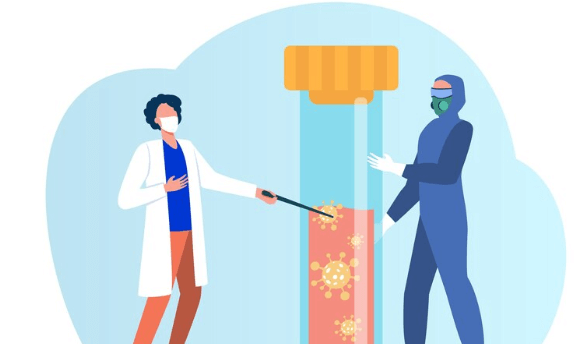In today’s world, access to clean and safe drinking water is more crucial than ever. With increasing pollution, contaminants, and rising concerns about health, water purifiers and filters have become essential household items. This guide aims to provide a comprehensive overview of Drinking Water Filter, discussing their importance, types, benefits, and how to choose the right one for your needs.
Understanding Water Quality
Importance of Clean Water
Water is essential for life. It plays a critical role in human health, impacting everything from hydration to digestion. Clean water is vital for preventing diseases, supporting bodily functions, and maintaining overall health. According to the World Health Organization (WHO), contaminated water can lead to serious health issues, including cholera, dysentery, and other waterborne diseases.
In developed countries, the availability of tap water is generally considered safe; however, various factors can affect its quality, including aging infrastructure, industrial runoff, agricultural practices, and household plumbing. Therefore, ensuring access to clean water is paramount for families and individuals alike.
Common Contaminants in Water
Water can become contaminated with various substances, some of which can pose health risks. Common water contaminants include:
Microorganisms: Bacteria, viruses, and parasites can enter water supplies and cause infections.
Heavy Metals: Lead, mercury, and arsenic can leach into water sources from old pipes or industrial activities.
Chlorine and Chloramine: Used in water treatment, these chemicals can affect taste and potentially have long-term health impacts.
Pesticides and Herbicides: Agricultural runoff can introduce harmful chemicals into groundwater.
Nitrates: Often found in agricultural areas, high levels of nitrates can affect oxygen transport in the bloodstream, especially in infants.
Understanding these contaminants is crucial for choosing the right water purification system.
What are Water Purifiers and Filters?
Definitions and Differences
Water purifiers and filters are both designed to improve water quality, but they function differently and serve distinct purposes.
Water Purifier: A water purifier typically uses advanced technologies to remove contaminants, including bacteria, viruses, and heavy metals. Purifiers often involve multiple stages of filtration and treatment to ensure the water is safe for consumption.
Water Filter: A water filter primarily removes particulate matter, chlorine, and some chemicals through various filtration methods. While filters improve taste and odor, they may not eliminate all pathogens or heavy metals.
How They Work
Both water purifiers and filters employ various methods to treat water:
Filtration: Water passes through a physical barrier (filter) that removes particles, sediments, and some contaminants. Common filter media include activated carbon, ceramic, and sand.
Reverse Osmosis (RO): This method uses a semi-permeable membrane to separate contaminants from water. Water is forced through the membrane, leaving impurities behind.
Ultraviolet (UV) Purification: UV light is used to disinfect water by destroying the DNA of microorganisms, rendering them inactive and unable to reproduce.
Distillation: This process involves boiling water to create steam and then cooling it back into liquid form, leaving contaminants behind.
Types of Water Purifiers and Filters
There are several types of water purifiers and filters available, each with its advantages and limitations. Here’s a breakdown of the most common types:
Activated Carbon Filters
Overview: Activated carbon filters use carbon granules to absorb impurities and chemicals from water.
How They Work: The carbon’s porous structure traps contaminants as water flows through it, effectively removing chlorine, sediments, and some volatile organic compounds (VOCs).
Advantages:
Improves taste and odor.
Relatively inexpensive and easy to replace.
Suitable for treating municipal water.
Limitations:
Does not remove heavy metals or microorganisms.
Requires regular replacement to maintain effectiveness.
Reverse Osmosis Systems
Overview: Reverse osmosis systems are among the most effective water purification methods.
How They Work: Water is forced through a semi-permeable membrane that allows only water molecules to pass while blocking larger contaminants, including salts, heavy metals, and microorganisms.
Advantages:
Removes a wide range of contaminants, including heavy metals, nitrates, and microorganisms.
Produces high-quality drinking water.
Limitations:
Slower filtration process compared to other methods.
Wastes some water during the purification process.
Requires periodic membrane replacement.
UV Water Purifiers
Overview: UV purifiers use ultraviolet light to disinfect water, making them an effective choice for eliminating microorganisms.
How They Work: Water is exposed to UV light, which disrupts the DNA of bacteria, viruses, and other pathogens, rendering them harmless.
Advantages:
Effective against a wide range of microorganisms.
Does not alter taste or odor.
Quick and chemical-free purification.
Limitations:
Does not remove chemicals, heavy metals, or sediments.
Requires electricity to operate.
Distillation Units
Overview: Distillation is a method that purifies water by boiling it and then condensing the steam back into liquid form.
How They Work: When water is boiled, impurities are left behind. The steam is collected and cooled, resulting in purified water.
Advantages:
Removes a wide range of contaminants, including heavy metals and microorganisms.
Effective for softening hard water.
Limitations:
Slow process and energy-intensive.
May not remove some volatile organic compounds (VOCs).
Can be expensive to purchase and operate.
Ion Exchange Filters
Overview: Ion exchange filters are commonly used for water softening and removing specific contaminants.
How They Work: Water passes through a resin bed that exchanges ions, effectively removing hard minerals (calcium and magnesium) and replacing them with sodium ions.
Advantages:
Effective for softening water and reducing scale buildup.
Can be used in conjunction with other filtration methods.
Limitations:
Does not remove all contaminants.
Requires periodic regeneration of the resin.
Whole House Water Filters
Overview: Whole house water filters are designed to treat water at the point of entry, ensuring all water in the home is purified.
How They Work: These systems typically combine multiple filtration methods to remove contaminants from all water sources in the home.
Advantages:
Provides clean water for all household needs (drinking, bathing, cooking).
Reduces the need for separate filters for different outlets.
Limitations:
More expensive upfront cost.
Requires professional installation and maintenance.
Benefits of Using Water Purifier for Home
Using Water Purifier for Home offers numerous benefits, from health advantages to environmental impacts.
Health Benefits
- Reduction of Waterborne Diseases: Effective filtration removes pathogens and contaminants that can cause illness, ensuring safer drinking water.
- Improved Taste and Odor: Water filters enhance the taste and smell of tap water by removing chlorine and other undesirable substances.
- Minimized Chemical Exposure: Purification processes reduce exposure to harmful chemicals like heavy metals and pesticides, promoting overall health.
Environmental Impact
- Reduced Plastic Waste: Using a water purifier or filter encourages individuals to use reusable water bottles, reducing reliance on single-use plastic bottles.
- Lower Carbon Footprint: By filtering tap water instead of buying bottled water, consumers can help reduce the environmental impact associated with plastic production and transportation.
Cost-Effectiveness
- Savings Over Time: Although initial investment in a water purifier or filter may be high, the long-term savings on bottled water purchases can be significant.
- Increased Property Value: Installing a whole house filtration system can enhance the value of a property by providing clean and safe water for all residents.
How to Choose the Best Water Filter
Selecting the Best Water Filter system for your needs requires careful consideration of several factors:
Assessing Your Water Quality
Before purchasing a water purifier or filter, conduct a water quality test to identify contaminants. This information will help you determine which system is best suited for your needs.
Understanding Your Needs
Consider your specific needs, such as:
The number of people in your household.
Your water usage (drinking, cooking, bathing).
Any specific health concerns or sensitivities.
Evaluating Features and Technologies
When comparing different systems, consider:
Filtration methods and technologies used.
Flow rate and capacity.
Replacement filter frequency and costs.
Warranty and customer support options.
Maintenance and Replacement Costs
Regular maintenance is crucial for the effectiveness of water purification systems. Be sure to consider the costs associated with replacing filters, membranes, and other components when evaluating your options.
Installation and Maintenance
DIY Installation vs. Professional Help
Many water purifiers and filters can be installed as DIY projects, especially countertop or under-sink models. However, more complex systems, such as whole house filters, may require professional installation.
Regular Maintenance Tips
- Follow Manufacturer Guidelines: Always adhere to the manufacturer’s recommendations for maintenance and replacement schedules.
- Check for Leaks: Regularly inspect connections and fittings for any signs of leaks or damage.
- Keep Filters Clean: Clean or replace filters as recommended to maintain water quality.
When to Replace Filters
Filter replacement schedules vary by model and usage. Common signs that filters need replacement include:
Decreased water flow rate.
Unpleasant taste or odor.
Cloudy or discolored water.
Top Water Purifiers and Filters on the Market
Reviews of Popular Brands
When considering water purifiers and filters, several reputable brands stand out for their quality, performance, and customer satisfaction. Here’s a look at some top brands and their offerings:
- Brita: Known for its affordable pitcher filters, Brita offers a range of products that effectively reduce chlorine, lead, and other contaminants.
- Aquasana: Aquasana provides a variety of whole house filtration systems, under-sink units, and countertop models. Their systems often feature multi-stage filtration technologies for comprehensive purification.
- Berkey: Berkey water filters are renowned for their effectiveness in removing bacteria, viruses, and heavy metals. These gravity-fed systems are portable and suitable for emergencies.
- iSpring: iSpring specializes in reverse osmosis systems, offering multiple stages of filtration to ensure high-quality drinking water.
- ZeroWater: ZeroWater’s pitcher filters feature a unique five-stage filtration process that effectively removes total dissolved solids (TDS), providing clean and pure water.
Conclusion
Access to clean and safe drinking water is essential for health and well-being. Drinking water filter and purifiers play a vital role in ensuring water quality, removing contaminants, and promoting a healthier lifestyle. With various options available, it is crucial to assess your water quality, understand your needs, and choose a suitable purification system that fits your household. Investing in a water purification system not only benefits your health but also supports environmental sustainability and cost-effectiveness. By ensuring you have access to clean water, you can enjoy peace of mind and enhance your quality of life.
FAQs
How do I know if I need a water purifier or filter?
Conduct a water quality test to identify contaminants. If your water contains harmful substances, a purifier may be necessary.
How often do I need to replace the filters?
Replacement frequency varies by system and usage. Always follow the manufacturer’s guidelines for maintenance.
Can I install a Drinking water filter myself?
Many water purifiers and filters are designed for DIY installation. However, complex systems may require professional assistance.
Do water purifiers remove fluoride?
Some purification methods, such as reverse osmosis, can remove fluoride, while others, like activated carbon filters, may not.
Is bottled water safer than tap water?
Bottled water can sometimes be safer, but it often contains microplastics and has a higher environmental impact. A good filtration system can provide safe drinking water from tap sources.




